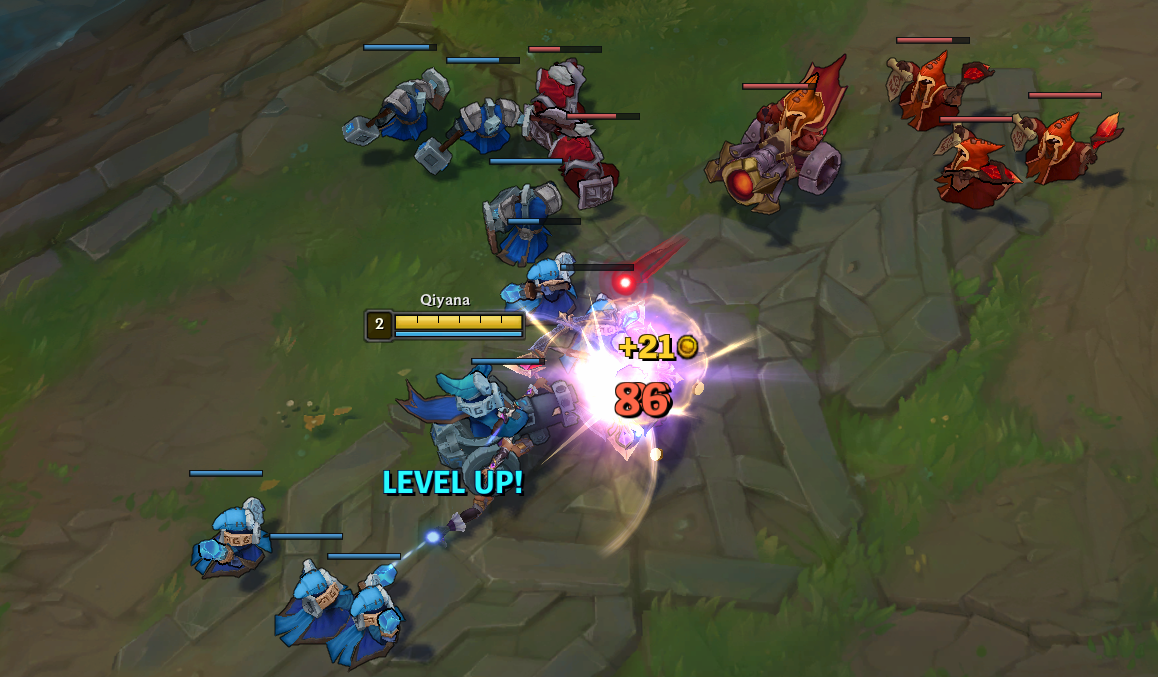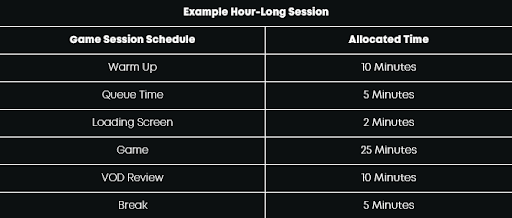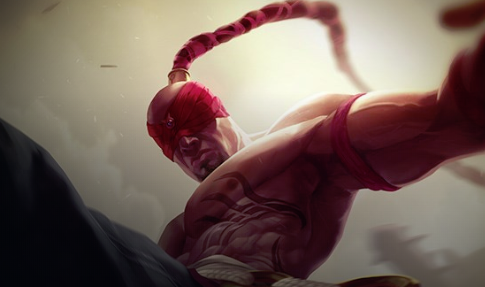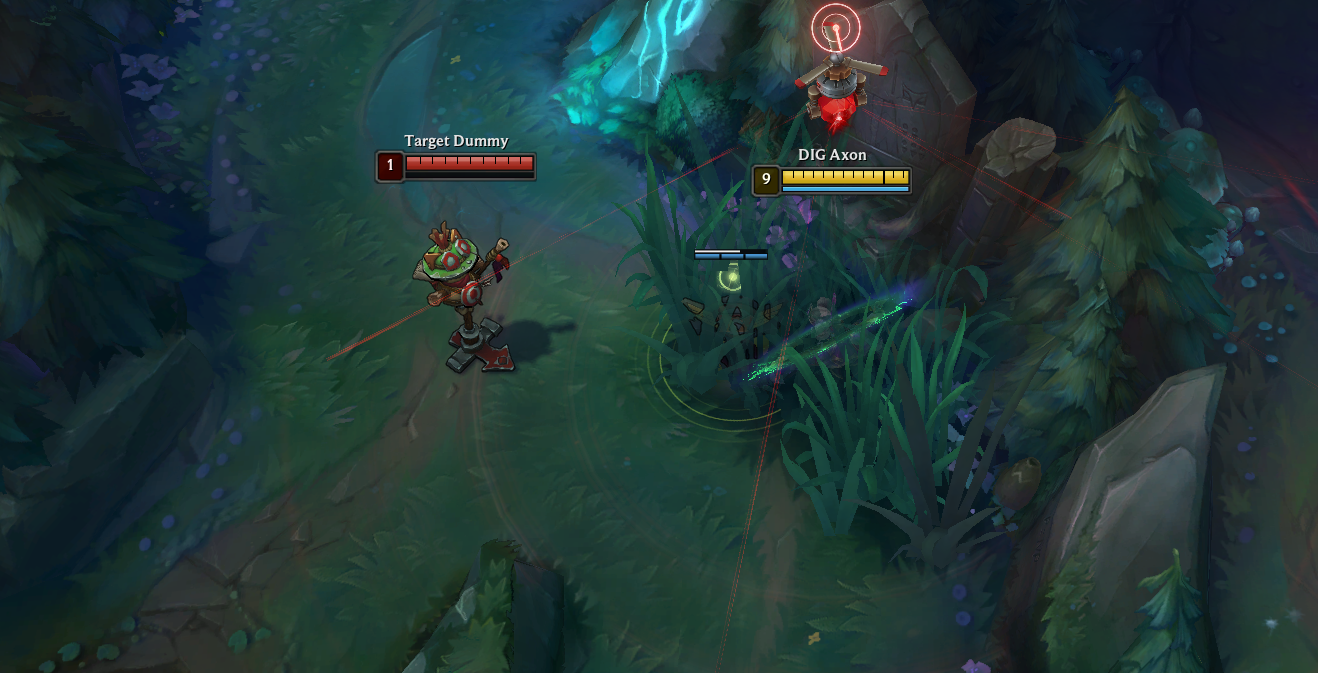Every year, millions of League of Legends players set their sights on achieving new heights in League of Legends. Most commonly, players regain their motivation after the struggles and hardships of the year prior because of Riot's changes in the preseason and think to themselves, "this is my year." For what exactly? Well, it depends on the player, but at the very least, we know it's to climb in ranked! So, to help start the season strong and in the right direction, this guide will cover all the main weak points in the strategy players have to progress in the year and help players learn to restructure their game plan and get that new upgraded border by this time next year!
Where Do I Start?
The most challenging thing to figure out is where you need to start changing how you play the game. Here is an easy one based on one simple fact. Reducing your Champion Pool will help you learn and grow as a player! For the one-trick-ponies out there, you can skip this step, but for the rest of you with 90+ unique Champions played last year, listen up.
Review Your Stats
Let's start with reviewing your stats for the previous year. For what we're looking for, pull up your stats using op.gg (or your preferred League stats website) for the season, listing your Champions played and their featured stats. First, check how many unique Champions you played, then check your total # of games played that season. For example, 74 unique Champions with 315 games played. That's an average of only four games per Champion. With statistics like this, it's no wonder players only dream of climbing! The current top five solo queue players in North America average 33 games per Champion! That's a difference of 8x the number of matches per Champion! So, as a rule of thumb, the higher the number of games you play per Champion, the less likely your Champion Pool is hindering your climbing!
Reduce Your Champion Pool
Next, evaluate the win rates of your most played and least played Champions. If you have Champions with more than 50 games in a season, and their win rate is less than 55%, you should consider dropping them from your Champion pool. Any Champions with only a handful of games should also be considered. After cutting these Champions, you should be left with roughly 75% of your Champion pool. Ask yourself if any of these win rates surprise you to trim further. If they do, stop playing them (even if it's a reasonable win rate but a small sample of games). The only Champions you should be keeping are the ones that have a win rate that is good and does not surprise you. When following this process, you should continue until your data matches the top of the ladder (roughly 30 games per Champion, 50%+ win rate). Using the same example that had 74 Champions played across 315 games, that account would have to play 3 Champions that, when combined, that account has a 58%-win rate (otherwise, 48%). Something so simple will drastically improve your ranking and help you climb faster!
The only other thing to consider in reducing your Champion pool is to make sure you will have something to play in every position with a ban rate of less than 10%! That way, if you are 'filled' into a specific position, there is only a 10% chance that your only Champion for that role is banned. If it's banned, dodge.
Set Goals for the Season
Now that you have a portfolio of Champions for your climb, it's time to set your eyes on your targets for the year. In this section, you will need 3-5 specific goals that are quantifiable via the client's stats page, 2-3 general goals that you will need to watch to see if you are achieving them, and a final overall goal for the season.
Specific Goals
The specific goals are pretty simple in principle. For example, higher CS/minute, higher warding/minute, higher kill participation, etc. All the stats you consider improving upon should be available on the stats page on your account. Once you have set these goals, you shouldn't change them. Even if they were too easy or far too tricky, it's good to see where you are aiming and where you shot!
General Goals
The general goals are trickier to keep track of but still crucial to your success. For example, it could be improving your decisiveness. This doesn't mean making better decisions but making decisions and trusting your decisions by acting on them. Mistakes are simply opportunities to learn from yourself! Another example could be improving your proactivity. This doesn't mean predicting your enemies' plans but considering what their plans may be! Overall, these goals are intended to keep your eyes on the improvement, not the result! Keep your eyes on progress, and you'll find the results you desire will come easier!
The trick is making sure you are quantifying your path to success in these goals properly. For goals like the examples provided, consider tallying how many times you found yourself considering a play and making an executive decision on it, and thinking about other game factors besides what's simply in front of you, respectively.
Overall Goal
The overall goal should not be actively checked or considered until the year's end. This is something you should effectively be writing down, putting in a locked box, and not opening it until the end of the year. Whether the goal is to have a specific win rate or a certain rank is entirely up to you. However, the key is to hold yourself accountable, focus on the specific and general goals you've made for yourself, and avoid thinking about your overall goal.
For some players, it may be best never to open your account overview to prevent seeing your rank! If it helps, do it! You'll find that by focusing on more tangible aspects of the game, your rank will improve, often, regardless of whether you achieve those specific and general goals! Nevertheless, make sure to celebrate the victories and learn from the defeats!
Create a Warmup/Practice Regimen
Improving in a video game is no different than improving in any other skill. You should always start a session with a warm up regime. Ideally, you'll choose a Champion that you expect to play in that session, load into the practice tool, and practice/warm up on two critical things: last hitting/clearing camps and Champion-specific drills.
First, practicing CSing is as simple as loading into a practice tool and last hitting minions and playing around with the wave state using abilities for 5-10 minutes (recalling when appropriate). Of course, with clearing camps, the idea is the same, load into a practice tool and practice a route that you expect to run with that Champion (mimicking a gank or recalling when appropriate) for 5-10 minutes.

Next, you'll want to work on some Champion-specific drills. For example, if you're playing an assassin, that could be your basic laning combos at level 3. Repeat this drill, starting slow, then building up speed to the point where it's still comfortable and consistent (a few minutes). Then, practice your max damage combo. Again, starting slow, then building up speed. In both drills, you should also practice these combos starting from different angles to mimic the environments you can encounter starting on the blue side or red side in your games! Another example of a drill would be your ganking combo given various positions or kiting as a Marksman with different attack speeds to mimic your power spikes as you progress through the game.
Create Consistent Environment
To set yourself up for success, you need to make your playing sessions dedicated periods where you fully commit your attention to the game. Otherwise, you can't expect to reach the same level as other players who do. Of course, this will vary with everyone. Some may only be able to commit one game's worth of time to this every week, and others may be able to do several hours every day! Either way, you need to accept what is feasible for you. Remember, this must be attainable and repeatable throughout the entire year. Once you determine it, allocate the time to incorporate all the necessities of this guide, including warming up, breaks, queue time, Champion Select time, game time, and VOD review!

If you have enough time for multiple games in one session while accounting for these necessities, imagine each session as a 'best-of' format. For example, if you have enough time in a session to have three games, pretend it's a best-of-three and act accordingly. If you win the first two games, do not play the third. Instead, use the remaining time to do a VOD review, analyzing what you did well and what you were thinking about when making those decisions while it's still fresh in your mind. If you lose both games, instead, VOD review and analyze what you did well and what you did poorly, considering your thought processes and how you can refine them in the future (to align with your specific and general goals outlined earlier). Finally, play the third game if you win one and lose one!
Champion Select and Loading Screen
Both Champion Select and the Loading Screens are the two most underused periods of the game that differentiate between those hungry to improve and those hoping to improve. These are not the times to go to the washroom; that's what your breaks are for. It would be best if you used this time to create your roadmap to victory in five easy steps. First, establish what your enemies' win condition is. Second, determine what your team's win condition is. The point of this is to know what you're aiming for (your team's win condition) and what you're trying to avoid (your enemies' win condition).
Next, you should set a goal for all three stages of the game (early, mid, and late) that will help guide you in the direction towards maximizing your team’s chances at achieving your win condition and minimizing the enemies’. Your early game goal should be focused on your matchup and how you need to play it to ensure you can gain control over the game to build towards your win condition. For example, if you play a mid laner with a lot of agency, establish your priority over the lane and use that priority to assist your jungler with counter jungling.

Your mid-game goal should minimize your enemies' win condition using your advantage from your early game. For example, setting up vision around Dragon before it spawns to set picks and prevent the enemy from stacking there. Suppose you effectively established lane priority and used it to assist your jungler in your early game goal. In that case, you'll easily be able to set up vision around the dragon before the enemy can approach. This will make it impossible to stack dragons as a win condition.

Finally, your late-game goal should prioritize your team's win condition while the enemies are unlikely to succeed. For example, using your lead to create pressure in a side lane so that they must respond and send at least one player to defend/match the split push. This pressure then gives you time to either push your advantage elsewhere with a numbers advantage or simply make the enemy believe that's what you're doing and instead set up a pick to expand the lead you've created. Preferably, funneling these resources into your team's win condition if it's a specific Champion.
By establishing these goals, the road to victory is much clearer. In the end, you'll still win or lose, but at least now, you can quickly determine where things went right or wrong and continue to fine-tune your decisions and strategies to improve your gameplay!
How to VOD Review
Finally, you need to VOD review. Following all the previous steps is fantastic but adding in VOD reviews will take it to the next level. Break each game into three sections (early game, mid-game, and late game). Write down the goals you established for each from the previous step. While reviewing each section of the game, consider what went wrong on your journey to the section's purpose. Once determined, consider what you could have done (within your control). For newer players, it may be easier to watch the sections in the reverse order as it'll be easier to notice what has gone wrong based on the consequence, then see what decision caused it.
Conclusion
Of course, like everything, it's easier said than done. However, this guide should be a template for how you should approach each season if you're genuinely looking to reach peak League of Legends. These strategies and concepts have proven themselves through and through in traditional sports.
Overall, consider it as simple as this. Identify your strengths from the previous year and concentrate your approach to focus on them. Set goals to know what to strive for. Create a practice regimen and a consistent environment to hone your skills. Think ahead and use your time wisely. Finally, be open to criticism from yourself and others, and take the time to reflect on your failures and achievements.








